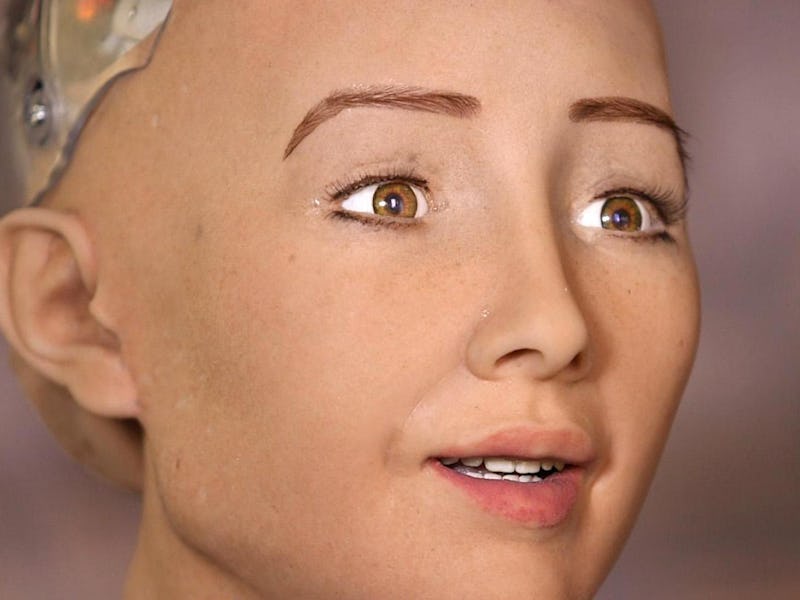The A.I. Team Behind Sophia Is Helping UNESCO Teach Kids About Robots
SingularityNET is spearheading a new initiative.

SingularityNET, the global artificial intelligence network that’s helping power the Sophia robot, is partnering with UNESCO’s International Bureau of Education to teach children around the world about new technologies that will shape the coming decades, Inverse can reveal.
The partnership will develop a new form of curriculum spanning the years from kindergarten to 12th grade, aimed at preparing kids for the coming fourth industrial revolution, also known as “industry 4.0.” The organizers plan to pilot the curriculum in six countries, including Ethiopia, with the ultimate goal of ensuring that A.I. and other technologies are not dominated by a tiny group of rich people.
“We are teaching A.I. to see the world from only one perspective,” says SingularityNET CEO Ben Goertzel, who warns of a risk of “digital colonialism.” “Imagine the biases algorithms like Google’s will display when they are tasked with recognizing people and objects from non-Western countries that have entirely different cultural norms and languages.”
Many figures in A.I. warn that developers need to consider these issues sooner rather than later. The IEEE Standards Association has drafted a set of ethics guidelines so designers can consider unintended consequences of their creations ahead of time, avoiding biases like the racist beauty pageant system. A Princeton University study last year also found text analysis machines inheriting human biases.
“One of our key goals is to make A.I. development more of a broad, participatory pursuit, to ensure that A.I. algorithms and services are created and contributed by a very wide variety of people, with different backgrounds and knowledge and interests,” says Goertzel. “Putting A.I., blockchain and allied technologies like robotics and biotech in the school curriculum can help toward this goal in a very dramatic way.”
The UNESCO bureau’s initiative is part of the fourth United Nations Sustainable Development Goal, promoting lifelong learning opportunities and ensuring inclusive and equitable quality education. Goertzel is working on the project with the bureau director Mmantsetsa Marop and Betelhem Dessie, from SingularityNET’s partner iCog Labs based in Ethiopia’s capital of Addis Ababa. The two firms are also working together on using plant images to diagnose crop diseases in collaboration with the Leshan Agricultural Research Institute in Sichuan, China.
Dessie has experience with teaching kids about these new technologies. She serves as project manager of the iCog Anyone Can Code initiative, a precursor to the UNESCO project.
iCog's initiative gave hands-on time with robots.
“IBE-UNESCO and SingularityNET have embarked on this joint initiative to support the next generation of technologists across the world,” Dessie says. “The proposal also seeks to advance gender equality in opportunities to specialize in STEM-based professions.”
The planned curriculum covers an extensive array of subjects. The organizers plan to cover areas including educational robots, natural language A.I., machine learning to analyze data, blockchain experiments, 3D printing, wearables, smartphone-based bioimaging and numerous more.
“There is an urgent need to close inequalities in access to quality and relevant STEM education and learning between the developed and the developing world, between the advantaged and the disadvantaged,” Marope says. “IBE-UNESCO and SingularityNET share the resolve to foster equity of access to, contribution to, and benefit from future technologies.”